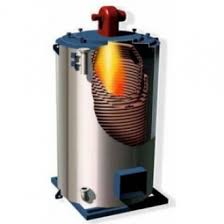
Nov . 06, 2024 08:45 Back to list
boiler hot oil
Understanding Boiler Hot Oil Systems
In industrial processes, ensuring optimal temperature control is essential, and one of the most effective ways to achieve this is through boiler hot oil systems. These systems utilize thermal oil as a heat transfer medium, allowing for precise and efficient heat management across various applications, from food processing to chemical production.
What is Boiler Hot Oil? Boiler hot oil systems operate by heating a specialized thermal oil to high temperatures, which is then circulated through pipes to heat exchangers or other equipment. Unlike water or steam, thermal oil can be heated to much higher temperatures without generating excessive pressure, making it a safer and more efficient option for high-temperature applications.
Advantages of Using Hot Oil Systems One of the primary advantages of boiler hot oil systems is their ability to maintain consistent temperatures throughout the heating process. This is critical in industries where temperature fluctuations can compromise product quality. Additionally, thermal oil systems are designed to run at lower operating pressures than traditional steam boilers, minimizing the risk of leaks and improving safety.
Another noteworthy benefit is the versatility of thermal oils. Different formulations exist, allowing industries to select oils with specific properties tailored to their processes. For example, some oils exhibit excellent thermal stability and low viscosity, which enhances their performance at elevated temperatures.
boiler hot oil

Applications in Various Industries Boiler hot oil systems are widely used across various sectors. In chemical manufacturing, these systems play an integral role in processes such as distillation and polymerization, where high temperatures are essential. The food industry also relies on hot oil heating for processes like frying, baking, and pasteurization, ensuring that food products are cooked thoroughly and safely.
Additionally, hot oil systems are commonly utilized in the plastic and rubber industries, where they provide consistent heat for molding and extrusion processes. Their capacity to handle high temperatures helps maintain the quality and characteristics of materials, ensuring consistent production output.
Maintenance and Safety Considerations While boiler hot oil systems offer numerous benefits, proper maintenance is crucial for safety and efficiency. Regular inspections, oil sampling, and cleaning of heat exchangers can help prevent breakdowns and prolong the lifespan of the system. Furthermore, it is important to monitor the condition of the thermal oil, as degraded oil can lead to reduced efficiency and potential hazards.
In conclusion, boiler hot oil systems are an essential component of many industrial processes, providing efficient and reliable heat transfer. Their ability to operate at high temperatures and low pressures makes them a preferred choice in various applications, from food processing to chemical manufacturing. By adhering to proper maintenance protocols, industries can ensure the longevity and safety of their hot oil systems, ultimately enhancing productivity and product quality.
-
Efficient Biomass Fired Hot Water Boiler | AI Heating Solution
NewsAug.01,2025
-
High-Efficiency Gas Thermal Oil Boilers | HPT Models
NewsJul.31,2025
-
Oil Fired Hot Water Boilers Sale - High Efficiency & Affordable
NewsJul.31,2025
-
High-Efficiency Commercial Oil Fired Steam Boiler for Industry
NewsJul.30,2025
-
High-Efficiency Biomass Fired Thermal Oil Boiler Solutions
NewsJul.30,2025
-
High Efficiency Gas Fired Thermal Oil Boiler for Industrial Heating
NewsJul.29,2025
Related PRODUCTS






















